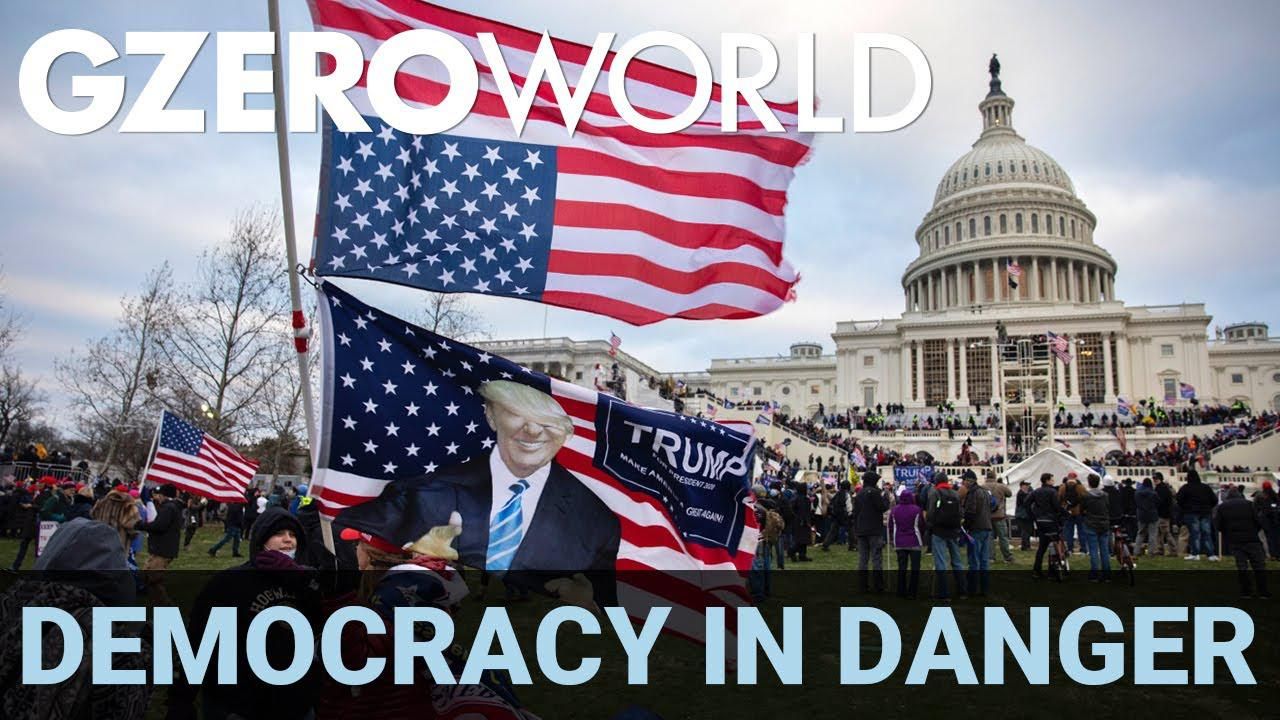American strife: Will US democracy survive? Fiona Hill explains post-Jan 6 stakes

One year after the attack on the US Capitol, American democracy is still hurting.
For Ian Bremmer, a democracy dies when regular people like the rioters choose violence over votes, and we can no longer agree on objective reality. But Republicans have done such a great job at whitewashing that Democrats are now the ones with their back against the wall ahead of the November midterms.
On GZERO World, Ian spoke with Fiona Hill, a former US national security official with a dim view of what lies ahead for American democracy.
January 6 laid bare "the deep divisions, the partisan infighting, the polarization within our society" — which a year later still has Democrats and Republicans mostly split over what happened, what it means, and who was responsible.
Hill, a key witness in former president Donald Trump's first impeachment trial, has no regrets about serving in his administration. She wanted to work on Russia after Moscow's interference in the 2016 presidential election.
After learning what Vladimir Putin thinks of American democracy, Hill worries about the global implications of January 6.
Putin loves how right now "there's no us, there's no we" in America, or in US foreign policy. So, how do you deal with a guy who revels in your disunity? The only way, she says, is "collective, coherent, concerted pushback."
China too is watching closely. But the good news is that if Washington doesn't have its house in order, neither does Beijing. And that means no war in 2022.